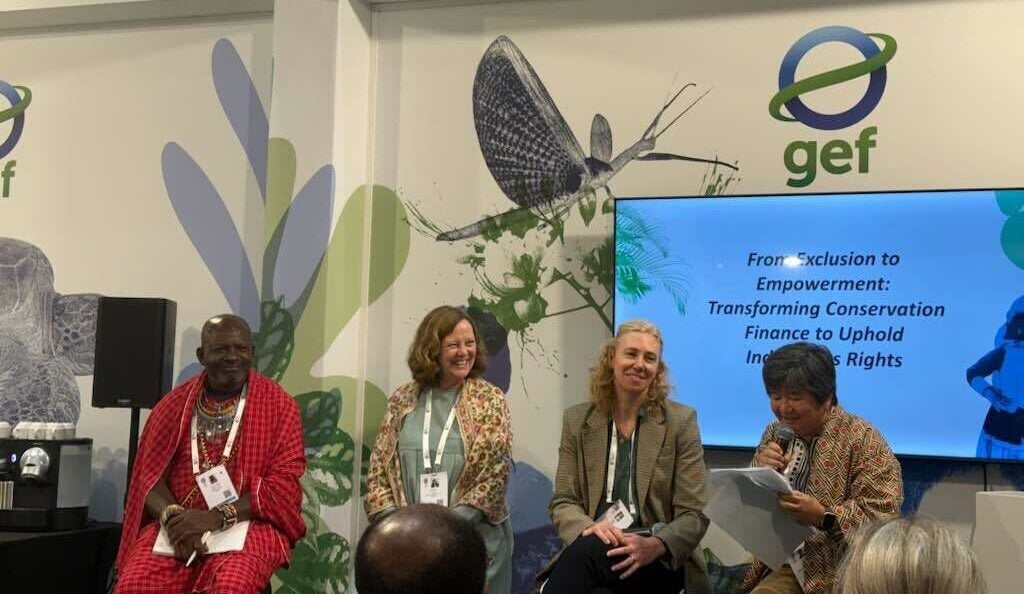
IUCN World Conservation Congress 2025 panel, ‘From Exclusion to Empowerment: Transforming Conservation Finance to Uphold Indigenous Rights’. Panelists, left to right: Malih Ole Kaunga (Founder and Executive Director, IMPACT Kenya), Stefanie Lang (Executive Director, Legacy Landscapes Fund), Annie Mark (Senior Director, Global Partnerships, Environmental Defense Fund) and Joan Carling (Executive Director, Indigenous Peoples Rights International)
By Aarthi Sivaraman and Annie Mark
Our world is at a crossroads today. The biodiversity crisis is accelerating, with forests, rivers, and ecosystems that sustain people and wildlife under the growing strain of climate shocks. Worryingly, the global commitment to conservation funding is wavering even as the stakes rise.
For example, Germany, long a leader in financing Indigenous tenure rights, is openly debating cuts, while development and climate finance face serious headwinds in the United States. Around the world, conservation is at risk of slipping down the agenda. But here’s the problem: the demand for action has never been louder.
We know this because Environmental Defense Fund, along with its partners in the Coalition for Nature & People undertook research across Brazil, Zambia, and Indonesia to better understand how conservation projects funded by Official Development Assistance (ODA) are perceived and experienced by communities.









